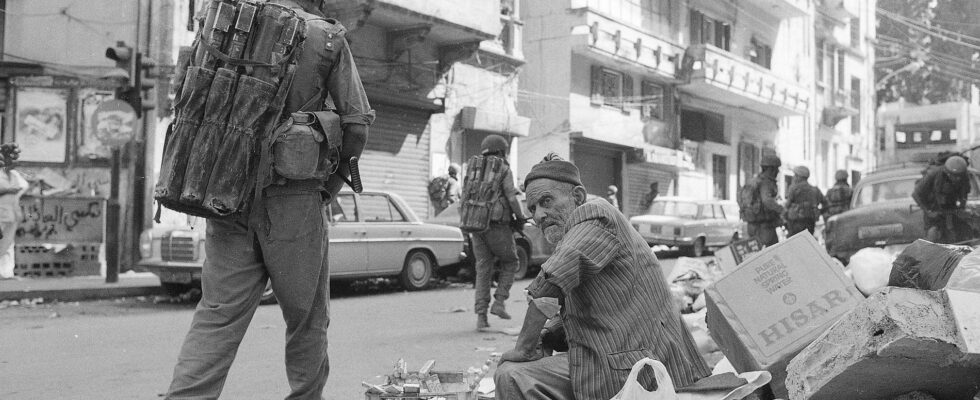unsaveSave
Old and new wars – or just stages of the same conflict? In the photo, taken in Beirut during Israel’s 1982 invasion, Israeli soldiers pass a cigarette vendor.
1 / 3 Photo: AP/TT
Several shocking turns – but the last year’s war still follows the same pattern as many before. Military victories in the Middle East will be short-lived if they cannot be translated into political progress, says analyst Alexander Atarodi.
– Every time an actor has tried to upset the balance of power in the region, it has resulted in disaster.
There are many earlier examples in the region, going back at least to the Six-Day and October Wars when Israel’s neighbors sought to destroy the young Jewish state. Atarodi cites Israel’s first invasion of Lebanon in 1982, the US-led overthrow of Iraq’s dictator Saddam Hussein, as well as decades of superpower action in Afghanistan – force of arms and surprise bring quick success, but since then?
– There will be tactical gains, military gains today. But long-term problems, political problems, remain, says Atarodi, who is an independent security policy analyst.
– They may very well come back to the surface in two years, five years or whatever, in Iraq and Afghanistan. In some cases, it can come back ten years afterwards.
Test the limits
This time it was the Palestinian Hamas that shocked Israel with its giant terrorist attack on October 7 last year. The response was an overwhelming military offensive. It was initially focused on Gaza, despite the fact that Hamas’s allies in Lebanon and Yemen as well as – to a lesser extent – Syria and Iraq, also joined the war.
It was only after six months that Israel “began to somewhat test the limits of Iran”, the major power behind the militias, according to Atarodi. On the evening of April 1, Israeli warplanes swept over Syria. Robots were fired at the Iranian consulate in Damascus, which was destroyed. Generals and diplomats were killed.
Weakened capacity
Iran responded with the first ever direct robotic attack on Israel. The game plan of the conflict was thus definitely redrawn.
It quickly became clear that the region’s two other decisive powers, Saudi Arabia and Turkey, would remain on the sidelines. And the United States also ended up there to a large extent, when the superpower’s attempt to push through a cease-fire in Gaza ran aground.
– The massive military support for Israel remains, says Atarodi.
– But the idea of the US as an actor with the capacity to put pressure on Israel has disappeared, or at any rate weakened very considerably.
“What is the purpose?”
Israel has thus been free to continue to challenge Iran in increasingly spectacular ways – with the pager attacks in Lebanon as one culmination, the bombs that killed Hamas and Hezbollah’s top leaders, Ismail Haniya and Hassan Nasrallah, another.
But if it now appears that Israel can do what it wants militarily, the question remains what happens next.
– It is very important now for Israel to formulate something political. What do you want to achieve in Lebanon? How long should you be there? What is the purpose?
– Is there a political solution to how Gaza should be governed? And so on. There are an incredible number of fundamental problems that remain.
